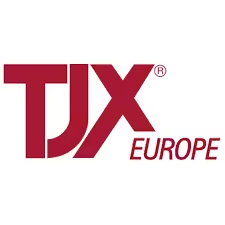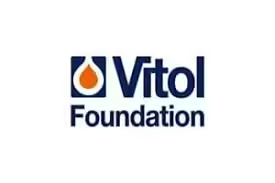RSTC Partners

TJX Europe
TJX Europe has been the number one partner of the Rwenzori Sustainable Trade Centre (RSTC) and the Rwenzori communities since 2008, playing a pivotal role in advancing the region’s socio-economic development through the Rwenzori Sustainable Programme. As a long-term partner, TJX Europe has provided invaluable support across various initiatives, focusing on improving livelihoods, empowering local communities, and promoting sustainable development.
Since the inception of the partnership, TJX Europe has funded critical projects that have impacted thousands of smallholder farmers and vulnerable groups, including women and youth. Their contributions have enabled the establishment of village savings and loan associations (VSLAs), supported farmer cooperatives, and promoted sustainable agriculture practices, particularly in coffee and cocoa farming. These efforts have not only increased income for local farmers but also improved their access to both local and international markets, enhancing the region’s economic resilience.
A significant milestone of this partnership is TJX Europe’s £210,000 commitment to the Forever Home project, which will provide RSTC with a permanent office and operational space. This investment will further strengthen RSTC’s ability to serve the Rwenzori communities by offering a sustainable base for its ongoing operations, as well as creating employment opportunities and fostering local economic growth.
Through this enduring collaboration, TJX Europe has had a profound impact on the Rwenzori region, contributing to the long-term sustainability and prosperity of the communities it serves.
Cooperatives
The six cooperatives are crucial partners of the Rwenzori Sustainable Trade Centre (RSTC), forming the backbone of its operations and community-based development model. These cooperatives, primarily involved in the production of coffee, cocoa, and cotton, represent thousands of smallholder farmers in the Rwenzori region. By partnering with RSTC, the cooperatives gain access to critical resources, including market linkages, training, and financial support, enabling them to improve their productivity and livelihoods.
The relationship between RSTC and the cooperatives is symbiotic. RSTC provides training in sustainable agricultural practices, business development, and financial literacy, which helps the cooperatives optimize their operations and increase their market competitiveness. In return, the cooperatives contribute to RSTC’s mission of fostering economic growth, environmental sustainability, and social development in the region.
Through RSTC’s support, these cooperatives have been able to adopt more efficient production methods, access international markets, and improve their financial resilience. The cooperatives also benefit from RSTC’s partnerships, such as trade financing from Ollema and funding from Vitol Foundation, which provide the necessary capital and infrastructure to expand their operations and enhance income diversification.
As key partners, the cooperatives play an essential role in driving RSTC’s vision of creating self-reliant communities, strengthening the region’s agricultural value chains, and ensuring long-term sustainability for farmers and their families.
Women Craft Associations
The over 34 Women Craft Associations are vital partners of the Rwenzori Sustainable Trade Centre (RSTC), playing a key role in advancing the social and economic empowerment of women in the Rwenzori region. These associations are composed of skilled artisans who produce a wide variety of handcrafted products, including baskets, textiles, and other culturally significant items. By partnering with RSTC, the craft associations gain access to important resources such as training in quality improvement, business development, and market access, both locally and internationally.
Through RSTC’s support, these Women Craft Associations have been able to formalize their operations, improve the quality of their products, and leverage their membership in organizations like the World Fair Trade Organization (WFTO) to access higher-value markets. The partnerships with RSTC enable the associations to increase production capacity, enhance product diversity, and maintain sustainable incomes for their members.
The craft associations not only contribute to economic growth but also play a significant role in preserving cultural heritage through their artisanal crafts. They help to create sustainable livelihoods for women, particularly in rural areas, empowering them financially while also promoting gender equality within their communities.
As partners of RSTC, these Women Craft Associations are integral to the broader mission of improving livelihoods, advancing women’s rights, and promoting sustainable economic development in the Rwenzori region.

TJX Europe
The off-price retailer TJX Europe, which comprises the TK Maxx and Home sense brands, has been the number one partner of the Rwenzori Sustainable Trade Centre (RSTC) and the Rwenzori communities since 2008, playing a pivotal role in advancing the region’s socio-economic development through the Rwenzori Sustainable Programme. As a long-term partner, TJX Europe has provided invaluable support across various initiatives, focusing on improving livelihoods, empowering local communities, and promoting sustainable development.
Since the inception of the partnership, TJX Europe has funded critical projects that have impacted thousands of smallholder farmers and vulnerable groups, including women and youth. Their contributions have enabled the establishment of village savings and loan associations (VSLAs), supported farmer cooperatives, and promoted sustainable agriculture practices, particularly in coffee and cocoa farming. These efforts have not only increased income for local farmers but also improved their access to both local and international markets, enhancing the region’s economic resilience.
A significant milestone of this partnership is TJX Europe’s financial commitment to the Forever Home project, which will provide RSTC with a permanent office and operational space. This investment will further strengthen RSTC’s ability to serve the Rwenzori communities by offering a sustainable base for its ongoing operations, as well as creating employment opportunities and fostering local economic growth.
Through this enduring collaboration, TJX Europe has had a profound impact on the Rwenzori region, contributing to the long-term sustainability and prosperity of the communities it serves.

Vitol Foundation
The Vitol Foundation is supporting the Rwenzori Growth Plan 2023-2025 with a grant of $395,090 USD to the Rwenzori Sustainable Trade Centre (RSTC). This funding aims to enhance the sustainability of RSTC’s operations over three years, with a focus on increasing the organization’s self-reliance by ensuring that 75% of its core costs are covered by its business activities. The grant also seeks to boost income diversification, targeting a 100% increase in group capital and individual savings from pre-COVID levels, and to develop a robust environmental network of stakeholders as part of the Rwenzori Environmental Strategic Plan.
Key interventions include the dissemination of food security strategies across four districts and the provision of health and bereavement insurance to benefit 2,500 individuals. By supporting these initiatives, the Vitol Foundation is helping RSTC strengthen its financial sustainability, build partnerships, and improve the livelihoods of its stakeholders through strategic, community-driven interventions.

Comic Relief
The Comic Relief grant supports the project titled “Recovering and Improving Livelihoods and Year-Round Incomes of Over 6,000 Rwenzori Families Emerging from COVID Shocks and Harms,” running from August 2022 to December 2025. Valued at £250,000 over 40 months, the project is implemented in partnership with Kabarole Research and Resource Centre (KRC) across the Rwenzori region. The project focuses on revitalizing livelihoods through village savings and loan associations (VSLAs) and cooperatives, providing entrepreneurship support, loan management, and financial literacy training. Key efforts aim to diversify income sources and recapitalize VSLAs and cooperatives to improve working capital and market access. The project also empowers women and youth through the “Go Back to School” campaign, vocational training, and initiatives to address gender-based violence (GBV), while tackling food security challenges by promoting climate-smart agricultural practices.
The project has achieved significant outcomes, including strengthened social cohesion within community groups, economic recovery with 67% of groups clearing debts, and enhanced youth and women’s empowerment through education, vocational skills, and job creation. Future plans include expanding financial literacy, intensifying food security efforts, and supporting cooperative leadership. With ongoing efforts, the project aims to build more resilient communities in the Rwenzori region, ensuring long-term success.

Ollema
Ollema offers low-cost and readily available hassle-free trade finance for coffee, cocoa, and cotton, making it an essential financing partner for the Rwenzori Sustainable Trade Centre (RSTC). This accessible financing solution provides cooperatives with the necessary capital to manage export contracts efficiently, ensuring smooth operations without the typical financial barriers or complexities.
By providing affordable and straightforward financial support, Ollema enables RSTC-affiliated cooperatives to fulfill their export obligations, scale their production, and enhance their market competitiveness. This partnership has greatly improved the financial stability of these cooperatives, allowing them to focus on growth and sustainability in global markets.
Kabarole Research and Resource Centre (KRC)
KRC is a key partner with a focus on sustainable development. The organization collaborates with RSTC to support smallholder farmers, improve livelihoods, and promote sustainable agricultural practices. KRC has been instrumental in conducting training for cooperatives, focusing on coffee and cocoa farming, gender inclusion, and business development. Their partnership with RSTC also includes capacity-building initiatives, equipping farmers with the skills needed to improve productivity and access to markets. Strengthening this collaboration could open opportunities for joint funding proposals, particularly for projects aligned with KRC’s mission of fostering sustainable agriculture and improving rural livelihoods.